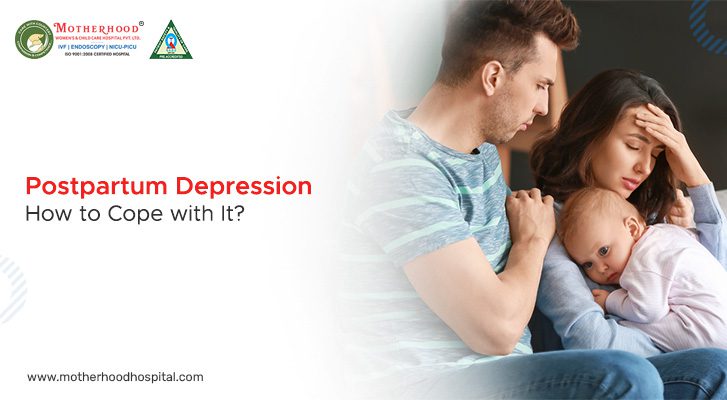What is Postpartum Depression, and How to Cope with It?
The journey of parenthood is a roller-coaster ride full of emotions. They vary from being extremely happy to being anxious and sad at times. Still, one thing that remains constant is embracing the emotional and beautiful journey of being parents. However, there is a thin line between embracing and ignoring your emotions. As a result, a lot of parents, especially mothers, face postpartum depression without even knowing that they have one.
As the best women’s hospital in Ahmedabad, it is our responsibility to create awareness about postpartum depression, and thus this blog.
What is Postpartum Depression?
Postpartum depression, baby blues (postpartum blues), and postpartum psychosis are postpartum mood disorders. PPD (Postpartum depression), results from an unusual combination of physical, behavioral, and emotional changes that a woman may experience after giving birth. One of the primary reasons is the change in the level of reproductive hormones like progesterone and estrogen, which face a sharp drop after giving birth.
Not only mothers, but research also claims that every 1 in 10 fathers face postpartum depression when their child is born. In addition, it can also impact surrogates and parents who adopt. The PPD diagnosis depends upon the duration between delivery and symptoms, along with the severity of postpartum depression. Even though medical professionals help you diagnose this depression, it is important for you to know the symptoms of postpartum depression.
Symptoms of Postpartum Depression
The symptoms of mood disorders vary, but since this blog focuses on PPD, here is a list of a few things you may experience.
- Excessive crying
- Constantly in a depressed or sad mood
- Extreme fatigue
- Sudden change in appetite, which can even result in no appetite at all
- Insomnia
- Inability or no interest in bonding with the baby
- Loss of focus, energy, and motivation
- Thoughts of physically harming either yourself or someone else
- Feeling guilty or hopeless
- Loss of interest in hobbies or things you enjoy
Causes of Postpartum Disorder
Certain factors increase the risk of postpartum depression. Some of them are.
- A family or personal history of postpartum depression, depression, or premenstrual dysphoric disorder (PMDD)
- Relationship or marital conflicts
- Limited or lack of social support
- Being a single or young parent
- A child suffering from health problems or needs special attention
- Complications during pregnancy or delivery
- A premature birth
- Ambivalence during pregnancy
How Can You Cope with Postpartum Depression?
Firstly, know that the feeling of being overwhelmed is absolutely okay. The journey of parenthood features ups and downs, and it is not necessary to suffer alone. You can visit our hospital anytime to get professional help from the best gynecologist in Ahmedabad at Motherhood Hospital. However, some of the things mentioned below can be of great help.
- Look for a friend, therapist, family member, or anyone who would listen to your experience and help you
- Focus on a healthy diet and physical exercise
- Take rest whenever you feel like
- Engage with your friends
- Try to join a group that supports new parents
- Take help with household errands or chores
- Do self-care and take out time for your hobbies
Wrapping Up
Postpartum depression is not something to feel guilty about. It is common and affects a lot of people after their newborn enters this world. However, it is essential to be aware of your condition and stay in touch with our team of experts at Motherhood Hospital to determine the best possible treatment to successfully win over this phase of emotions.



